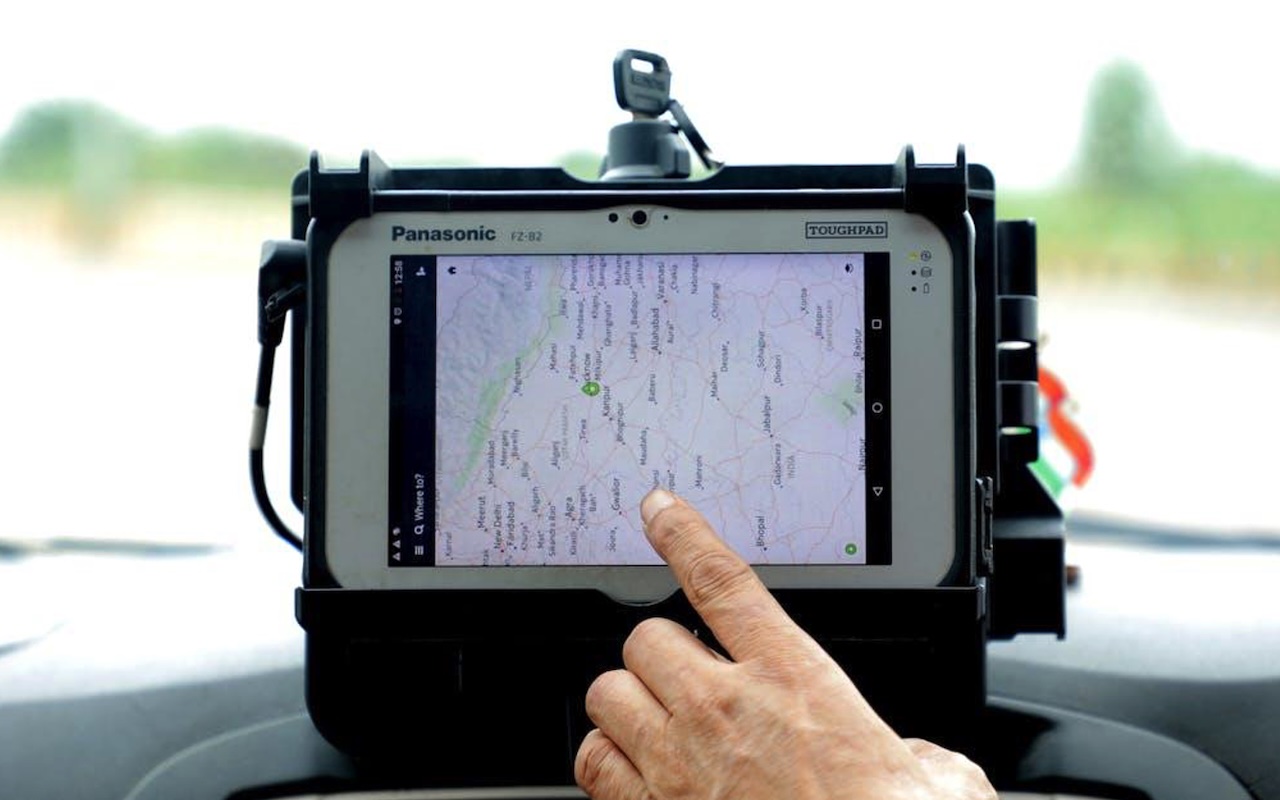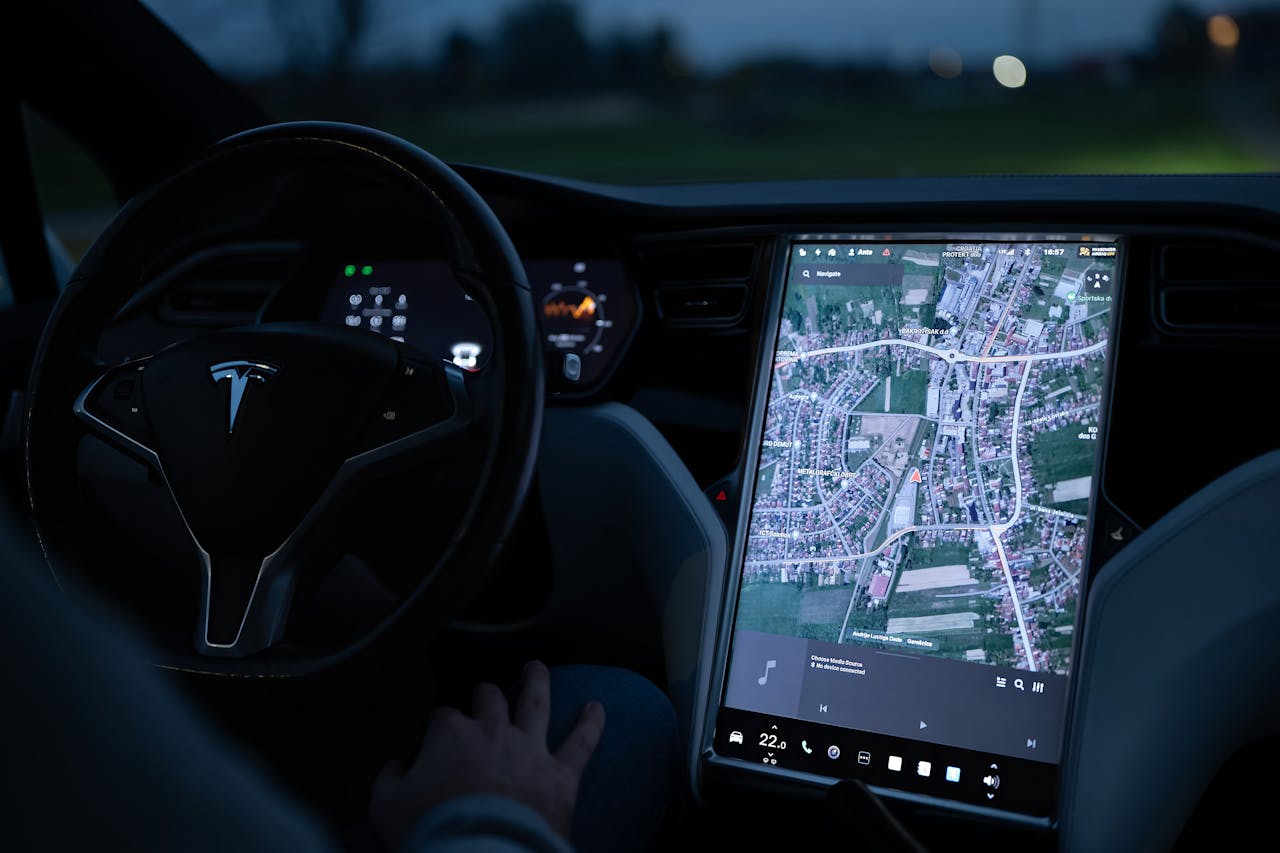
As vehicle technology advances, our cars are becoming smarter and more connected than ever. From navigation systems to real-time traffic updates, these innovations rely heavily on IP location data to enhance our driving experience. But with this convenience comes a pressing question: how safe is our personal information? The collection and use of location data raise serious privacy concerns that we can’t afford to ignore.
We trust our vehicles to get us from point A to point B, but they’re also collecting vast amounts of data about our whereabouts. This information can be shared with third parties, sometimes without our knowledge. According to the Electronic Frontier Foundation, location data can reveal intimate details about our lives, making it a prime target for misuse. As we embrace smarter cars, it’s crucial to understand the potential risks and take steps to protect our privacy.
Understanding IP Location Data in Vehicle Technology
IP location data plays a crucial role in connected cars, enhancing their functionality and user experience. As vehicles access this data, privacy implications become a critical concern.
What Is IP Location Data?
IP location data identifies a device's approximate geographic position using its IP address. This information reveals a general area, such as a city or ZIP code, without providing precise coordinates. In the context of vehicle technology, this data is collected from cars integrated with internet connectivity. Unlike GPS data, IP location data is derived from server interactions rather than satellite triangulation.
Modern vehicle systems utilize this data seamlessly for various connectivity purposes. However, its collection raises privacy risks if shared or exploited without proper safeguards. Examples of such exposure include tracking driving habits or constructing detailed user profiles.
How It Is Used in Modern Vehicles
IP location data supports critical vehicle functions like navigation, diagnostics, traffic monitoring, and a hidden radar detector. Connected vehicles use this data for route optimization and dynamic map updates. Additionally, manufacturers analyze aggregated IP location data to improve vehicle performance and enhance customer experiences.
Some advanced vehicles rely on IP location data to integrate with smart city infrastructure. For example, systems may predict traffic congestion and suggest alternative routes. However, this integration increases the importance of secure data handling to prevent unauthorized access or misuse.
Privacy Concerns with IP Location Data
IP location data in vehicle technology poses significant privacy challenges. As vehicles gather and transmit vast amounts of data, concerns about security, misuse, and personal privacy grow steadily.
Potential Risks of Data Misuse
Collected IP location data can be exploited if accessed by unauthorized parties. Misuse scenarios include tracking users' movements without consent, selling location information to marketers, or leveraging data for invasive surveillance. For example, patterns in driving habits might reveal sensitive details about a user's daily life. Protecting this data from unethical entities is crucial to minimize abuse risks and prevent unauthorized tracking.
Vulnerabilities in Data Security
Integrating vehicle technology with internet connectivity increases exposure to cyber threats. Security breaches can compromise IP location data, allowing hackers to intercept or manipulate sensitive information. For instance, cybercriminals could identify users' routines or use location data for targeted attacks. Robust encryption protocols and regular system updates are necessary to strengthen cybersecurity and safeguard vehicle-generated data.
Implications for Personal Data Privacy
Extensive IP location data collection raises significant concerns about personal privacy. Continuous tracking can lead to constructing detailed user profiles that include driving routes, visited locations, and behavioral insights. While these profiles support features like personalized navigation, they risk intrusive uses if improperly handled or sold. Transparent data-sharing policies and user opt-in controls are essential to mitigate these privacy risks.
Regulatory and Ethical Challenges

The integration of IP location data into vehicle technology brings regulatory and ethical questions to the forefront. Addressing these challenges is critical for maintaining user trust and protecting privacy.
Current Privacy Laws and Regulations
Existing privacy laws, such as the General Data Protection Regulation (GDPR) in the EU and the California Consumer Privacy Act (CCPA) in the US, aim to safeguard user data. These laws mandate transparent data practices, giving users control over their information. Regulations require companies to disclose how IP location data is collected, stored, and used, ensuring accountability for potential misuse.
Data localization laws complicate compliance, as global manufacturers must navigate varying legal landscapes. For instance, collecting IP location data in regions with strict policies may limit cross-border data sharing. Vehicle technology providers must align their practices with these regulations to minimize breaches and legal penalties.
Ethical Considerations in Data Handling
Handling IP location data ethically requires prioritizing user consent and data security. Collecting minimal data necessary for functionality helps mitigate privacy risks. Ethical challenges arise when companies use location data for secondary purposes like targeted advertising without explicit permission.
Transparency in data-sharing agreements is essential. Users should know if third parties, such as marketers, have access to their data. Data anonymization techniques can further protect individual identities while enabling useful insights. Upholding these standards builds user confidence in smart vehicle technologies.
Mitigation Strategies for Privacy Concerns
Addressing privacy concerns in vehicle technology involves implementing effective strategies to protect sensitive IP location data while supporting functionality.
Enhancing Data Encryption and Security
Strengthening encryption protocols ensures IP location data remains secure during transmission and storage. End-to-end encryption prevents unauthorized access, limiting the potential for data breaches. Advanced security measures, such as secure socket layer (SSL) encryption and network security protocols, also safeguard against cyber threats targeting vehicles.
Data anonymization reduces privacy risks by depersonalizing sensitive information while retaining its utility for analysis. Using encrypted communication channels between vehicles, servers, and third parties minimizes vulnerability to interception or hacking. Adopting these measures strengthens data privacy across the automotive technology landscape.
Transparency in Data Collection and Usage
Clear, accessible policies around IP location data collection reinforce user trust. Clearly outlining what data is collected, its intended purposes, and how it's processed or shared promotes transparency. Including real-time notifications or dashboard features in vehicles enhances user visibility over ongoing data operations.
Providing detailed usage agreements clarifies third-party data-sharing scenarios, fostering informed decision-making. Demonstrating compliance with frameworks like GDPR or CCPA through transparent practices ensures alignment with regulatory expectations while building users' confidence regarding the protection of their data.
Promoting User Consent and Awareness
Real-time opt-in controls empower users to manage their data-sharing preferences. By offering customizable location-sharing settings, we enable individuals to limit data collection to levels aligned with their comfort. These settings could include toggling features like navigation-based location tracking or third-party service access.
Educational initiatives increase awareness of privacy rights and data use implications. Resources, such as vehicle guides on data privacy or in-app tutorials, inform users on safeguarding personal information. Encouraging informed consent strengthens the relationship between users and connected vehicle technologies, mitigating long-term privacy concerns.
The Road Ahead for Vehicle Technology and Privacy
As vehicle technology evolves, addressing privacy challenges becomes essential for maintaining user trust. Innovations like IP location data offer convenience but raise pressing concerns about user data security and ethical use.
Balancing Innovation with Privacy Protections
Innovation in vehicle technology must prioritize user privacy without hindering progress. Manufacturers increasingly rely on IP location data for features like real-time updates, route optimization, and enhanced navigation efficiency. However, collecting such sensitive information requires a clear commitment to privacy protections.
We advocate for implementing privacy-by-design practices, integrating security measures into technology development from the outset. Transparent data policies that adhere to privacy regulations, such as GDPR and CCPA, are critical. Limiting data collection to what's essential and ensuring clear opt-in protocols fosters user confidence. Safeguarding user data should remain integral to advancing vehicle functionality.
Emerging Solutions and Best Practices
New solutions address privacy concerns by leveraging advanced encryption and anonymization technologies. End-to-end encryption and secure data storage systems reduce exposure to breaches, ensuring sensitive IP location data stays protected. Innovative opt-in systems give users control over how and when their data is shared.
Promoting collaboration among industry stakeholders sets benchmarks for privacy best practices. Partnerships can focus on standardizing anonymization methods and better regulatory compliance. Educational campaigns empower users to manage privacy settings effectively. A shared commitment to responsible data practices helps align technological advancements with robust privacy protections.
Images by Pexels
Share this post
Leave a comment
All comments are moderated. Spammy and bot submitted comments are deleted. Please submit the comments that are helpful to others, and we'll approve your comments. A comment that includes outbound link will only be approved if the content is relevant to the topic, and has some value to our readers.

Comments (0)
No comment